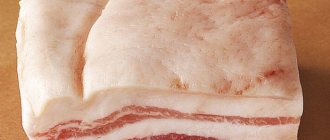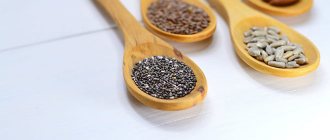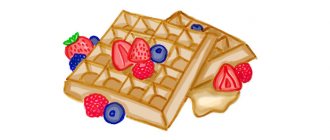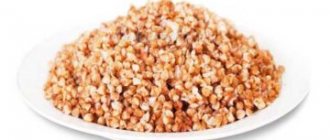The birth of a child is always a joy. But then there is a lot of excitement and anxiety associated with it. One of them is the mother's nutrition. And although breastfeeding is not a disease, the diet must be carefully selected and balanced. Some products are prohibited or allowed in small quantities. And therefore, many lovers ask whether cream can be used while breastfeeding. The answer to this is highly controversial and requires the right approach.
Composition of the drink "Snowball"
The fermented milk drink “Snowball” is produced using a special technology that has not changed since the 70s of the last century. The product contains milk and starter from a pure culture of microorganisms. Additives in the drink include sugar or fruit syrups. The starter consists of thermophilic streptococcus and Bulgarian bacillus.
The shelf life of the product is from 5 to 7 days, since it contains no artificial preservatives. Preservation is ensured by a special method of preparation, mowing at certain temperatures, and cooling in the required mode.
The beneficial qualities of fermented milk drink are provided by its composition:
- a high content of B vitamins is recommended for hormonal disorders in the female body;
- vitamin E (a powerful antioxidant) weakens the negative impact of an unfavorable environment on the body;
- magnesium – reduces stress, stabilizes blood pressure, eliminates constipation, normalizes kidney function;
- calcium – ensures normal blood clotting, strengthens the nervous system, strengthens tooth enamel, bone and cartilage tissue;
- sodium – needed for normal brain function, helps with muscle spasms, convulsions;
- phosphorus – stimulates memory development, increased attention, helps maintain teeth in good condition, ensures strong bone tissue;
- potassium – regulates blood pressure, helps supply brain cells with oxygen, removes toxins, poisons, waste;
- promotes weight loss;
- increases milk production, improves its quality;
- regulates metabolic processes;
- reduces the accumulation of intestinal gases in the mother and colic in the baby;
- the bacteria content helps normalize the functioning of the digestive system;
- increases appetite;
- stimulates food digestion;
- The high content of vitamins A and E helps restore the body after childbirth, physical activity, and illness.
Fermented milk products differ in the method of fermentation. For a nursing woman, lactic acid fermented drinks are better suited - fermented baked milk, yogurt, Snezhok, yogurt, Varenets, acidophilus milk.
It is not advisable to consume mixed fermentation drinks - kefir, kumiss - during lactation. For their preparation, the method of alcoholic fermentation is used, as a result the products contain a small amount of alcohol.
The benefits of fermented milk products during breastfeeding
Lactic acid products play an important role in the nutrition of any person, including mothers and babies.
- Helps saturate the body with a mineral such as calcium. For a growing organism, this substance is extremely important, as it is involved in the formation and strengthening of the musculoskeletal system. And for nursing mothers, a lack of calcium greatly affects the health of teeth, bones, and the beauty of hair, nails and skin.
- Removes toxins from the body.
- It has a positive effect on metabolism and helps get rid of extra pounds.
- Improves stable functioning of the gastrointestinal tract, relieves constipation, and helps maintain beneficial microflora.
- If you consume fermented milk products in moderation, it will help get rid of bloating, gas and reduce colic in your baby.
- Such products help strengthen the immune system and increase the body's resistance to viral and infectious diseases.
- For a nursing mother, a big plus is that “fermented milk” helps to increase and stabilize lactation.
These beneficial properties apply to all types of fermented milk products.
But with breastfeeding, you need to pay attention to other nuances, because even healthy food can be harmful if you consume it immoderately or choose the wrong type of product
Time of introduction into the diet
Fermented milk products are actively introduced into the menu of nursing mothers. They help in milk production. For example, natural yoghurts are allowed within two weeks after the start of feeding. But “Snowball” is recommended to be included in the diet only 3 months after the birth of the baby. This is due to the presence of sugar in the product.
Previously, for example, in the first month after birth, it is not recommended to use “Snowball” due to the high risk of an allergic reaction in a small child. This especially applies to products with the addition of fruit syrup instead of regular sugar.
Moderation and gradualism
As you can see, the answer to the question that was posed at the beginning of the article: “is it possible to drink cream while breastfeeding” is ambiguous; it requires a balanced and, most importantly, individual approach. For some, 200 ml of cream will be beneficial, but for others, two tablespoons will be a test if the child has increased sensitivity to cow's milk proteins.
In this case, it is necessary to limit not only milk, but also other dairy products: cottage cheese, cheese, kefir. You can start with fermented milk products – low-fat yogurt and homemade yogurt: in small portions, observing the baby’s reaction.
By the way, dairy products that have undergone heat treatment (baking, boiling) are relatively safe.
With regard to dairy cream, as with other controversial products, the principle of moderation and gradualism remains paramount. What does it mean in practice?
- Use cream with minimal fat content - no more than 10-15%.
- Drink cream diluted as an additive to tea, coffee, chicory; consuming a concentrated product may cause digestive upset in an infant.
- Drink no more than 100 ml and no more than two or three times a week; in tea/coffee – no more than 2-3 tablespoons (50 ml) daily or every other day.
- Choose pasteurized cream - sterilized cream contains minimal amounts of nutrients.
When buying cream, pay attention to its composition: it should not contain preservatives.
Whipped cream in desserts, as well as ice cream (ice cream), are undesirable when breastfeeding. Although the volume of the product is relatively small, when combined with carbohydrates (sugar), the allergic effect may be more pronounced. There is also a high probability of a child having bowel problems.
Cream when breastfeeding in the first month, i.e. during the neonatal period, are extremely undesirable. Refrain from consuming this product for the first two months, then, if necessary, gradually introduce it into your menu once or twice a week.
If you don't normally consume dairy products - especially during pregnancy - avoid whole milk and cream for the first three months.
Cream tea
To improve lactation, many experts recommend drinking warm green tea with cream 15 to 20 minutes before feeding. This combination not only reduces the stimulating effect of tea, but also has a relaxing, calming effect.
A drink made from chicory root with the addition of a small amount of low-fat cream will help boost immunity and reduce blood pressure: it’s both tasty and healthy!
Rules for introducing a new product
Each subsequent product on the menu must be introduced carefully so as not to cause a negative reaction from the baby. Expanding the diet of a nursing mother must be carried out constantly. She needs a lot of good, high-quality products to strengthen her strength and produce the required volume of milk.
Thanks to simple rules for introducing a new product to the menu, you can avoid unpleasant consequences:
- Only one new product needs to be introduced to determine exactly what the baby has a negative reaction to;
- the baby should be healthy, have no problems with the tummy or teeth - this is the best time for a new item on the menu;
- The mother eats most foods in the morning, so that she can watch the baby all day. It is better to drink “Snowball” in the afternoon, so calcium will be absorbed better.
- The first portion should be very small; the nursing mother eats it immediately after feeding. This way, only a small amount of new substances will pass into breast milk.
- There is no need to stock up in the refrigerator; it is better to buy fresh product for a nursing mother.
Negative manifestations can be of two types - on the skin (redness, rash) and from the digestive system (diarrhea, constipation). If the first attempt was unsuccessful, you can try a second time only after a month.
Consumption rate
The first portion of “Snowball” should be only 2 large spoons. Then the baby’s condition is monitored for 24 hours. If there are no negative effects on the introduction of a new product, then you can drink one glass of fermented milk drink per day. You can drink this drink 2-3 times a week.
How to choose a quality product in a store
Fermented milk products are produced using different technologies, but Snezhok is famous for the fact that it has preserved the recipe from Soviet times.
Before purchasing, you need to read its composition. It’s good if the sourdough contains a Bulgarian stick. This beneficial microorganism suppresses the spread of putrefactive microflora in the digestive system. Thanks to its special structure, the Bulgarian bacillus is tightly attached to the intestinal wall and stays in the body for a long time, which allows it to bring more benefits.
The packaging may indicate that the product is tank or thermostatic. These cooking methods do not affect the quality. Reservoir technology is older. The product is first manufactured and then packaged. The thermostatic method of preparation is new; with it, ripening will occur already in the container into which all the ingredients are poured. With this method, the contents of small clots are allowed, which dissolve when stirred. But there should be no delamination of the Snezhka; this indicates a violation of the technological process.
The price of a high-quality “Snowball” will be approximately 40 rubles per 500 ml. A cheaper product indicates low-quality raw materials for preparation. No preservatives are required for storage. All production takes place under sterile conditions, which allows the product to be stored for 14 days without chemical additives.
When should you refuse?
In some cases, fermented milk products are not recommended for consumption. If a nursing woman has had digestive problems (peptic ulcer of the stomach or duodenum), you need to carefully consume drinks such as “Snowball”. Gastroenterologists recommend not drinking them on an empty stomach, and not eating them with fresh fruits, which cause increased gas formation:
- grape;
- apples;
- pears;
- peaches.
For liver problems, consume fermented milk products after consulting a doctor.
The diet of a nursing mother is expanded from the first month due to some fermented milk drinks. 3 months after birth, a woman can include “Snowball” in her menu. Its beneficial properties will be an excellent addition to nutrition during lactation.
Benefit and harm - two sides of the same coin
Biochemical composition of cream
Similar in composition to cow's milk, but characterized by a higher fat content. Cream contains:
- Proteins and amino acids;
- Fats, including bad cholesterol and healthy lecithin;
- Small amount of carbohydrates;
- Vitamins: A, PP, C and group B;
- Micro- and macroelements: calcium, magnesium, phosphorus, selenium, sulfur, manganese, cobalt, copper.
Cream fats are easily digestible and are an accessible source of energy for the body. They can be recommended to people who are underweight, athletes, as well as those who suffer from stomach diseases. But cream is contraindicated for patients with diabetes, hypertension and obesity.
As for nursing mothers: the combination of milk proteins and fats can cause indigestion and increased gas formation in the baby, as well as manifestations of food allergies: indigestion, itching, dryness and skin rashes.
On the other hand, a nursing woman needs an additional amount of energy - from 600 to 900 kcal per 1 liter of breast milk. Where can you get them from if you are on a lean diet: you can’t eat sweets, you can’t eat fatty foods, you can’t eat flour. This is where dairy products can come to the rescue: butter, whole milk, cottage cheese, fermented baked milk, cream.











